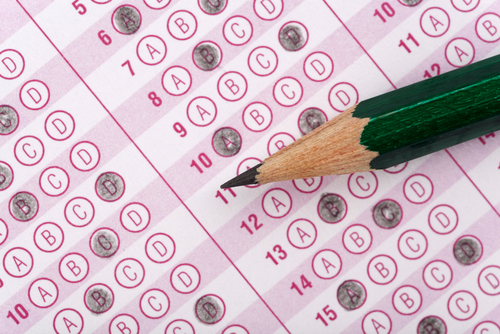Planned structure of new practice skills questions shared by National Conference of Bar Examiners

Image from Shutterstock.
Updated: In-depth questions aimed at allowing candidates to demonstrate knowledge and skill of attorney functions, in addition to multiple-choice questions and essays, are expected to be part of the NextGen bar exam, according to a May 24 news release from the National Conference of Bar Examiners.
If jurisdictions want to continue using the current version of the test instead of the NextGen bar exam, they can, says Judith Gundersen, president and CEO of the NCBE. However, a spokesperson later clarified that jurisdictions will not be able to use the current version indefinitely.
The proposed revisions follow recommendations from a 21-member content scope committee, based on a three-year study of the bar exam. Preliminary content scope outlines were released in 2022 and followed by a public comment period. Almost 400 people, including law school deans, lawyers, judges and law students weighed in, according to the news release. Additional changes are expected to be released in 2024.
For the attorney skills testing piece, the release describes it as a combination of short-answer and multiple-choice questions, with scenarios involving complex legal issues that draw on multiple subject areas.
“We see it as a really exciting opportunity to assess lawyering skills without requiring on-your-feet performance,” says Missouri Court of Appeals Judge Cynthia Martin, chair of the NCBE’s Testing Task Force.
A content scope report lists examples of new questions, described as “foundational skills.” Questions structure for skills assessment are preliminary, according to the report.
It describes the way a skills question might be laid out: Test-takers would be asked to identify which legal principles would affect the outcome of a matter and identify the strengths and weaknesses presented in a scenario for the client or the opposing party, based on rules and standards.
For questions requiring more fact development, candidates would also be asked to identify which facts had to be investigated or the best strategy for investigating the facts to evaluate strengths and weaknesses for the client and the opposing party. Additionally, test-takers would be asked to assess a probable outcome.
It’s possible that taking clinical courses will play a significant role in preparing bar applicants for the skills section of the NextGen bar exam, says Jon Lee, a professor at the University of Maine School of Law who’s involved with drafting the test.
“I am optimistic that law schools will be able to provide much of the preparation on the skills side,” Lee adds.
Subjects expected to be tested on the new exam are business associations and relationships, civil procedure, constitutional law, contracts, criminal law, evidence, real property and torts.
Conflicts of laws, family law, trusts and estates and secured transactions will no longer be required knowledge for test-takers. However the topics may be part of “legal scenarios,” which will include research materials for test-takers, according to the news release.
Updated May 25 at 9 a.m. to clarify that jurisdictions will not be able to use the current version indefinitely.
Write a letter to the editor, share a story tip or update, or report an error.



